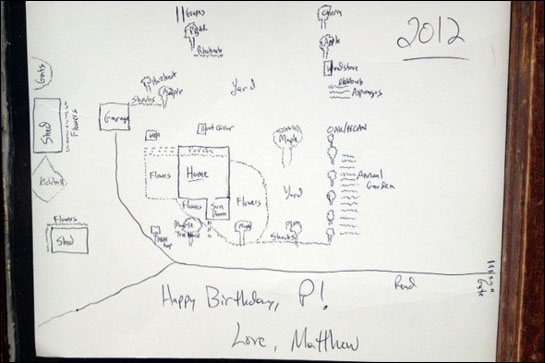A lot of times we think we know what we’re doing in the job hunt, and then someone surprises us with information we didn’t think of. My latest bunch of surprises came from the book, What Does Somebody Have to Do to Get a Job Around Here? by Cynthia Shapiro, who I have interviewed before, and she is always super smart.
So here’s some advice, based on the surprises I found in the book:
1. There’s one trick to all trick questions.
“All trick questions, even the really scary psychological questions, are crafted so that you will give a negative answer.”
The truth is that positive people are hired more often. And in an interview, people can show that they are that type of person by intentionally presenting their information in the most positive way.
So get all your bitching about your career out of your system before you get to the interview. And each time you are inclined to say something negative, change it or leave it unsaid. Once you get hired, there will be plenty of time to open the spigot of animosity if you need to.
But you work so hard on presenting yourself in your best light in the interview — why not attempt to extend that best you to your whole life instead of those two hours of interviews? People will like you better at work, and your positive outlook will help you to make all your experiences in life better.
2. A thank-you note is too late to express enthusiasm for the job.
“A hiring manager’s mind is made up in the first twenty minutes of an interview, and often nothing can be done to change that.”
During this twenty minutes, most hiring managers are subconsciously screening for enthusiasm. Because people want coworkers who are excited about their job. Ironically, though, most people who are interviewing for a job go into that interview unsure if they want the position, and they tell themselves they’ll make a decision based on the interview.
But if you decide to be enthusiastic about the job at the end of the interview or, worse yet, when you write the thank you note, you are way too late.
To solve this problem, go into the job convinced that you want it. Be enthusiastic about the job and get the job. You may decide later that you don’t want it. That’s fine. But this way you’ll have that decision to make. Note that this means the interview is not the time to ask difficult, probing questions about the company. Save those for after you have a job offer. Ask questions that convey a positive, sunny attitude toward your interviewer and the company. That will get you an offer.
3. No one will tell you that you’ve made a mistake.
“No one will tell you that your resume wasn’t up to par; it will simply land in the trash. No one will tell you that you said something that scared the interviewer during a phone screen; you’ll just never be able to get that person on the phone again.”
Part of the reason is that you never get feedback is it’s too high risk to tell candidates what they do wrong: There is little benefit to the company, since they are not going to hire you anyway, and there is the remote chance that you will bring up a discrimination lawsuit.
The other reason no one will tell you what you did wrong is because it takes extra energy to take time to help someone, and we can’t do that with everyone, so we help the people who look like the strongest performers. It’s like that axiom, “the rich get richer” but in this case, “the best candidates get better.” How to fix this in your own life? Ask for a lot of help from people who are in a position to help you.




